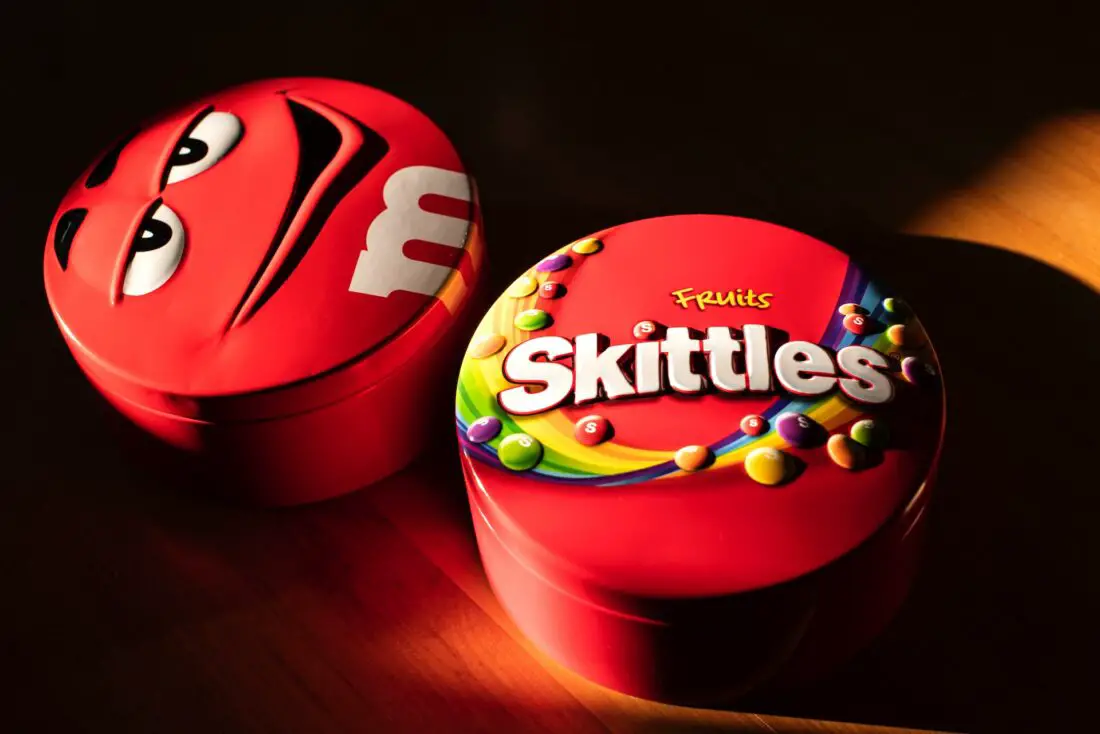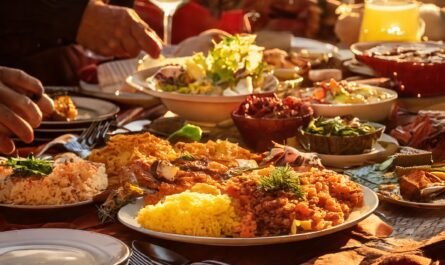We all have our favorite foods. Some of us love to savor a slice of homemade pie, while others prefer a juicy burger from their local fast-food joint. Whatever your taste buds desire, it’s important to know some certain ingredients and additives can be found on the shelves here in the United States but are banned in Europe and elsewhere. Here are nine specific banned foods in Europe you should be aware of before you decide what to cook up next time:
What We Will Cover
What Authorities Can Ban Foods in Europe?
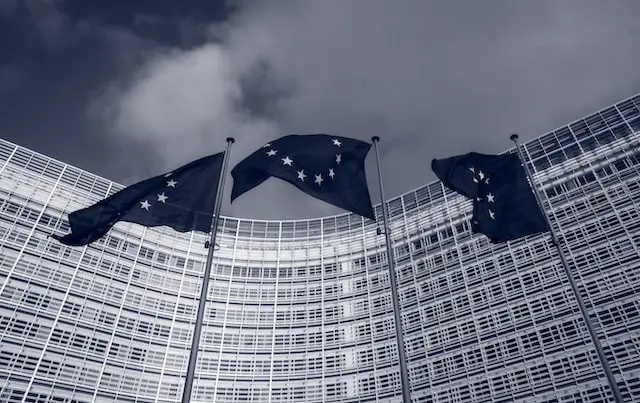
The European Union (EU) has a number of organizations that have the authority to ban foods. These organizations include:
- The European Commission: The European Commission is the executive branch of the EU. It is responsible for proposing new legislation, including legislation on food safety. The Commission can ban foods that it considers to be unsafe or that do not meet EU food safety standards.
- The European Food Safety Authority (EFSA): EFSA is an independent scientific body that provides advice to the European Commission on food safety. EFSA can assess the safety of food additives, pesticides, and other substances that may be used in food. If EFSA finds that a substance is unsafe, it can recommend that the Commission ban it.
- The European Parliament: The European Parliament is the legislative branch of the EU. It has the power to approve or reject legislation proposed by the Commission. The Parliament can also initiate its own legislation on food safety.
- The Council of the European Union: The Council of the European Union is the decision-making body of the EU. It is made up of representatives from the governments of the EU member states. The Council can adopt legislation on food safety proposed by the Commission.
Brominated Vegetable Oil
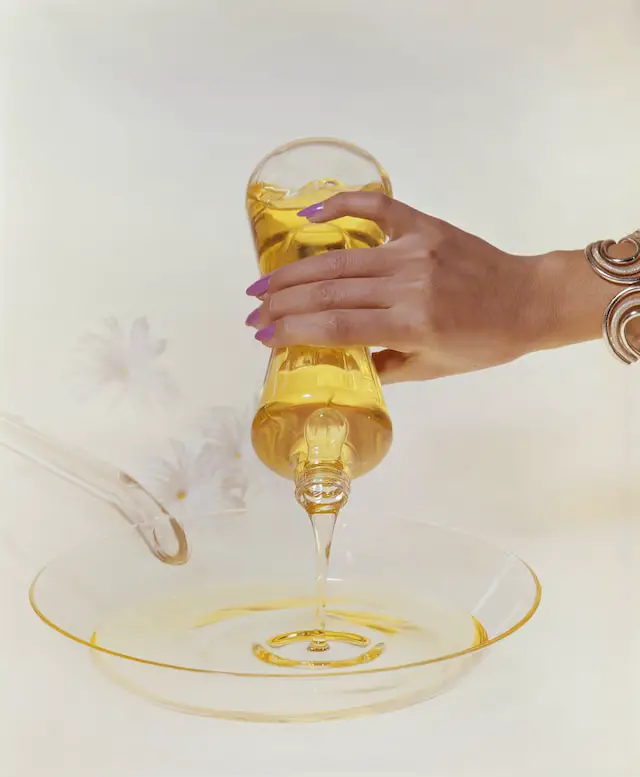
Brominated vegetable oil (BVO) is a chemical banned in 50 countries, including the European Union. It’s used to keep flavor oils from separating from citrus drinks—think Mountain Dew or Squirt—but it also contains bromine, which can cause issues with thyroid function and kidney problems. BVO was added to sodas in the 1960s as an additive for flame-retardant properties and is not found naturally in any foods or beverages.
Trans Fats
Trans fats are formed when processed vegetable oils are chemically altered to make them more solid. They’re used to give foods a longer shelf life and improve flavor, texture, and appearance.
While trans fats were once considered healthy because they were thought to lower LDL cholesterol (the “bad” kind) without increasing HDL (the “good” kind), they’ve been shown actually to increase LDL levels while lowering HDL levels—not good for your heart health! In fact, one study found that consuming just five grams per day of trans fat can raise the risk of coronary heart disease by 23 percent! That’s why European countries have banned them entirely from their food supply.
Coffee Mate
Coffee-mate, a popular non-dairy creamer brand, has faced restrictions and bans in some parts of the world primarily due to its ingredient composition. The main concerns often center around the inclusion of trans fats and certain food additives. Denmark was one of the first countries to strictly regulate trans fats in food products, effectively limiting the availability of products like Coffee-mate that contain hydrogenated oils.
Potassium Bromate
Potassium bromate is one of the banned foods in Europe, but still allowed in the United States. Some food companies use it to help them make bread fluffier and extend its shelf life, but it’s also been shown to be a potential human carcinogen.
Queen Conch
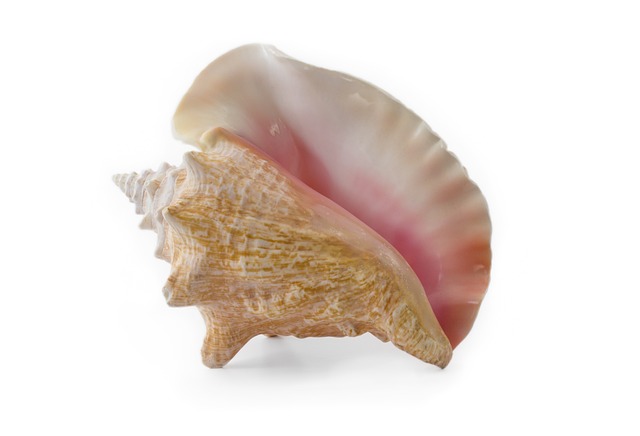
Queen Conch or Strombus pugilis is a sea snail that’s popular in the Caribbean for its meaty texture, creamy consistency, and strong flavor. The queen conch is endangered but still available on menus in Europe and the US.
According to the Food Safety News, Queen Conch has been banned from being imported into Europe since 1989 because they are considered “vulnerable” by the International Union for Conservation of Nature (IUCN). The US also bans imports of this species due to overfishing concerns.
Shark Fins
Of the banned foods in Europe, this one is understandable. Shark finning is the practice of cutting off sharks’ fins and throwing them back into the ocean to die. The shark will slowly bleed out, sink down to the bottom and die from starvation or suffocation from its missing gill slits. Shark finning is wasteful and cruel, as it involves killing many sharks for no reason other than for their fins.
The European Union banned shark finning in 2009, but this ban does not apply if you’re a member state of the EU yourself (as opposed to being a European citizen). While there are some restrictions on shark fishing in certain areas of Europe, most people can still sport their fins without any problem.
Azodicarbonamide
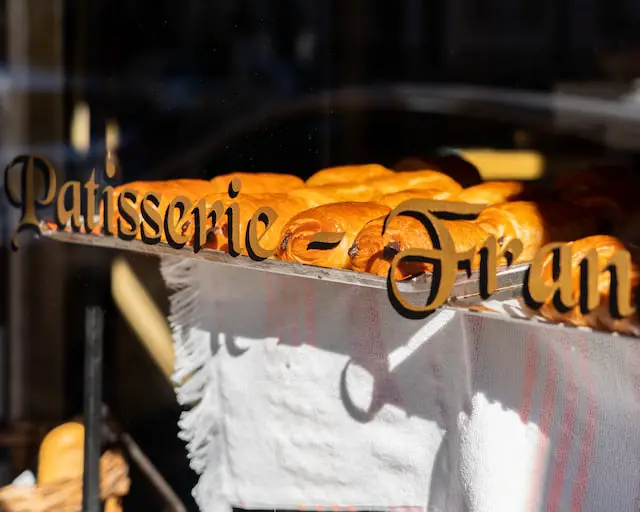
Some fast-food chains make baked goods with the chemical azodicarbonamide as a whitening agent and dough conditioner. Social pressure and awareness are causing its use to decline in the United States because of concerns that it is a carcinogen, but the FDA still permits it. It is banned in Europe.
Horse Meat

Horse meat is a common ingredient in European cuisine. It’s often used as a substitute for beef, which is considered more flavorful and lean. But horse meat has been banned in most of Europe since 2013—for reasons that may surprise you!
Horse meat is banned because of concerns over its safety and the possible presence of disease-causing pathogens like Salmonella, E. coli, and Listeria monocytogenes (a bacteria found in uncooked meats that can cause severe illness). To prevent these harmful bacteria from contaminating food products, governments have taken measures to ensure that all ready-to-eat foods sold across Europe contain no more than 1% horsemeat. So if you’re visiting Europe or eating there frequently, don’t worry too much about finding some horse on your plate during each meal!
Mountain Dew
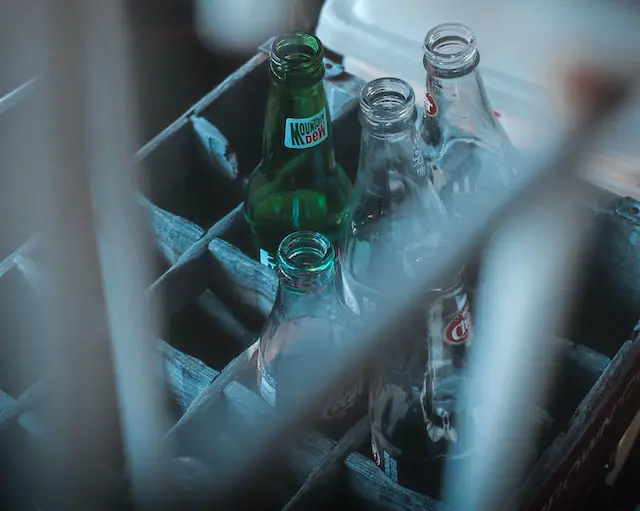
Mountain Dew is a popular soft drink banned in many schools. It contains high levels of caffeine, which can cause health problems when consumed in large quantities. Mountain Dew also contains high amounts of sugar and a poor source of nutrition. This can lead to obesity and other health problems if consumed regularly.
The soda also contains brominated vegetable oil (BVO) is a food additive that contains bromine, which is toxic in high doses.BVO is banned in Europe due to its negative health effects and potential to cause severe allergic reactions. Brominated vegetable oil is used as a flame retardant and added to Mountain Dew and other soft drinks.
Casu Marzu
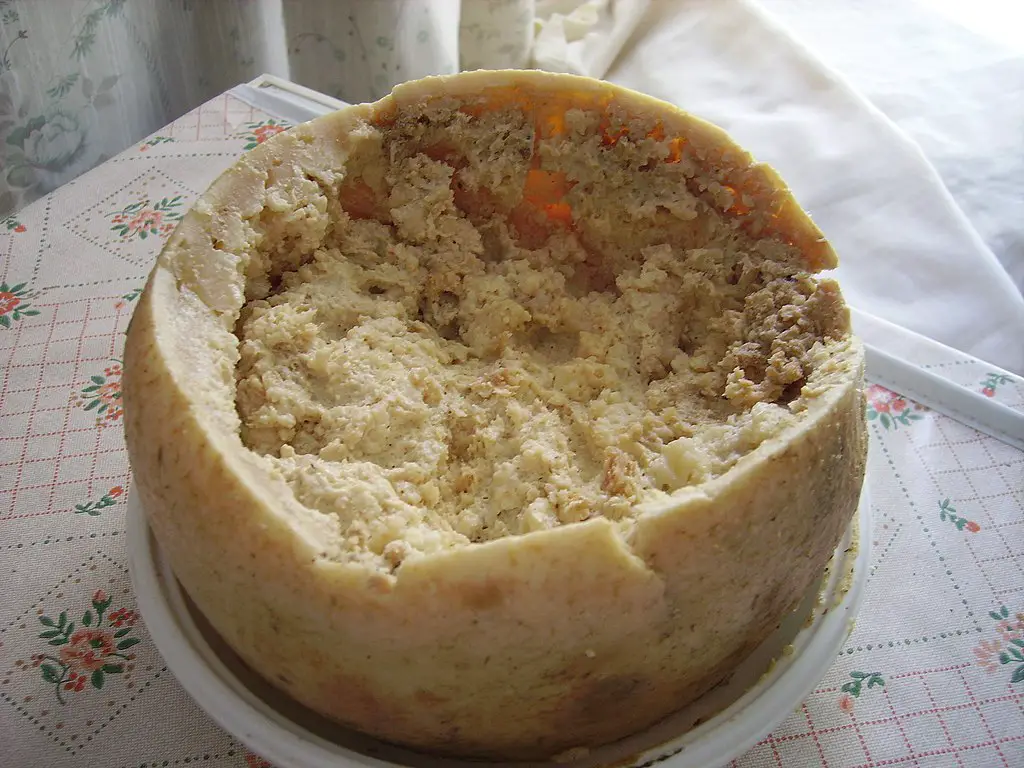
Casu Marzu is a traditional Italian cheese made from sheep milk. It is also known as “maggot cheese” because it’s produced by infesting the cheese with live insect larvae. The larvae are deliberately introduced to the cheese by Sardinian shepherds, who find them delicious. The larvae are actually fly maggots of the cheese fly Piophila casei, which feed on and digest parts of the sheep’s milk protein casein. Casu Marzu has been banned in most European countries due to health concerns regarding these insect larvae.
You may have heard stories about people eating this food before, but they’re probably untrue! In reality, these foods are much harder to find than you might think—and even if you come across one at some point during your trip abroad, it’ll probably be best if you turn around and walk away (or take a photo instead).
Farm-Raised Salmon
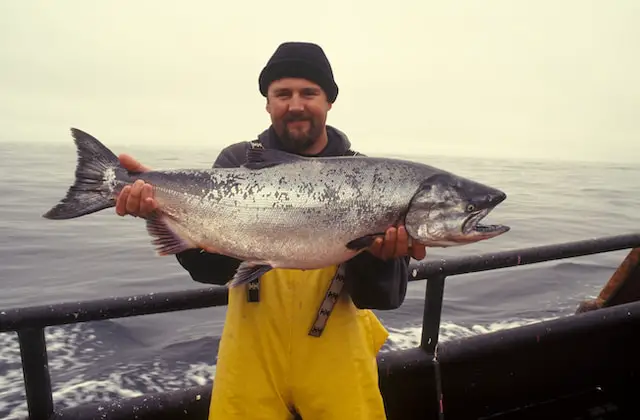
On the surface, it might seem like farm-raised salmon could be a healthier alternative to wild salmon. But when you look at what they’re both eating, it’s clear that’s not the case. Wild salmon subsist on a diet of krill and other small crustaceans in their natural environment. The same cannot be said for farmed salmon, whose feed often includes fish meal made from smaller fish like herring, sardines, and anchovies—fish that are high in PCBs (polychlorinated biphenyls).
When consumed consistently over time, PCBs are toxic chemicals that can cause human cancer. They can also cause organ damage and reproductive issues such as birth defects and low sperm count (in males). In addition to being found in the fat tissue of wild and farm-raised fish, PCBs also tend to accumulate, especially in areas with little or no vegetation growing close by—like around farms!
Popular Breakfast Cereals are Available in the US but Banned Elsewhere in the World
Some popular breakfast cereals available in the United States have been banned or face restrictions in other countries, mainly due to differences in food safety regulations, particularly concerning additives and genetically modified ingredients. Here are a few notable examples:
- Certain Kellogg’s Products: Some cereals from Kellogg’s that contain colors and additives like Yellow #5 (Tartrazine) and Yellow #6, which are linked to behavioral issues in children, have faced restrictions in European countries. These additives are not banned outright in Europe, but products containing them must carry warning labels, which can affect their popularity and availability.
- General Mills Cereals: Similar to Kellogg’s, some cereals from General Mills that include certain artificial colors and preservatives are less common in Europe and other regions that have stringent regulations on food additives.
- Cereals with GMOs: Cereals that contain genetically modified organisms (GMOs) might not be available in countries with strict GMO regulations, such as several EU countries, where there are rigorous approval processes and labeling requirements, or outright restrictions on growing and selling GMO crops.
These differences highlight the varying approaches to food safety and consumer protection across global markets. While these cereals are not typically “banned” in the traditional sense, they may be reformulated to meet local standards or simply not sold due to low consumer acceptance of certain ingredients.
Red 2 and Red 40
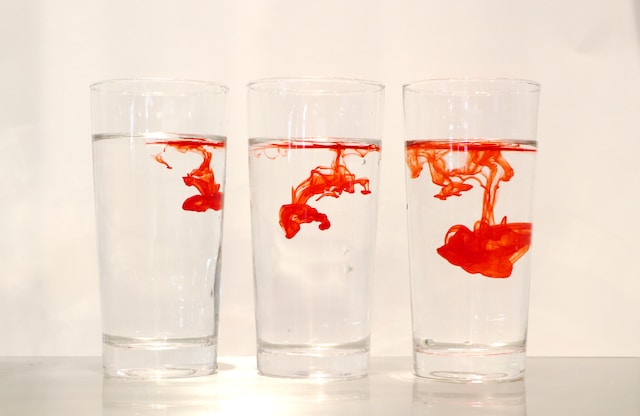
Red 2 and Red 40 are artificial food dyes linked to health problems such as hyperactivity and allergies. The EU has banned using Red 2 and Red 40 in food.
Titanium Dioxide
Titanium dioxide, often labeled as E171 in food products, is a widely used food additive, primarily for its role as a colorant that provides a white, opaque appearance. However, its status as a food additive has come under scrutiny, and it has been banned in some places due to health concerns.
Status of Titanium Dioxide as a Food Additive:
- European Union: As of 2022, the European Food Safety Authority (EFSA) declared titanium dioxide no longer safe as a food additive, leading to a ban in the EU. This decision was based on concerns about its potential to cause DNA damage and other health risks.
- United States: Titanium dioxide is still permitted as a food additive in the United States. The FDA considers it safe for use in food, subject to certain restrictions regarding the quantity used.
Common Foods Containing Titanium Dioxide:
Titanium dioxide is typically found in products that require a whiter or brighter appearance. Here are some common food items that may contain titanium dioxide:
- Confectionery: Used in sweets like candies, chewing gums, and decorated pastries to give them a bright white color.
- Processed Foods: Found in some processed foods like sauces, cheeses, and salad dressings to improve their visual appeal.
- Baked Goods: Used in baked goods to make frostings and icings appear whiter.
- Dairy Products: Some dairy products like yogurt and ice cream might contain titanium dioxide to enhance their texture and color.
As concerns about food safety and health impacts continue to evolve, the use of titanium dioxide might undergo further regulatory review in other regions as well. For consumers interested in avoiding such additives, it’s advisable to check product labels for E171 or titanium dioxide among the ingredients.
Brominated flame retardants (BFRs)
Brominated flame retardants (BFRs) are chemicals used primarily to reduce the flammability of materials such as electronics, furniture, and textiles. They are not used as food additives; however, concerns arise because these chemicals can accumulate in the environment and enter the food chain.
Status of Brominated Flame Retardants:
- Brominated flame retardants are not food additives and thus are not intentionally added to foods. However, they are subject to regulatory scrutiny and bans in various applications due to their environmental and health impacts.
- Specific bans: Certain types of BFRs, such as polybrominated diphenyl ethers (PBDEs), have been banned or phased out in many regions, including the European Union and the United States, due to their persistence in the environment and potential health risks, such as endocrine disruption and neurodevelopmental issues.
Presence in Foods:
Despite not being food additives, BFRs can be found in the food chain. Here are some common sources:
- Seafood: Marine organisms can accumulate BFRs from contaminated waters. Fish, especially fatty fish, and other seafood may contain higher levels of these chemicals.
- Meat and Dairy: Animals can accumulate BFRs through their feed or environment, leading to detectable levels in meat and dairy products.
- Other Animal Products: Eggs can also contain BFRs, depending on the contamination level of the chicken’s environment.
The presence of BFRs in food is mostly due to environmental contamination rather than direct addition to foodstuffs. Regulatory agencies monitor these levels to ensure they remain below established safety thresholds to protect public health. Consumers concerned about exposure to such chemicals can reduce their risk by varying their diet and choosing products from sources with minimal environmental contamination.
Several additives and food ingredients that are banned in Europe but still sneak into our food.
BVO is one of the banned foods in Europe and Japan but is used as a stabilizer in many citrus-flavored soft drinks such as Mountain Dew and Fanta Orange. It’s also found in sports drinks like Gatorade, Powerade, and Vitamin Water.
Trans fats are among the banned foods in Europe because they’ve been shown to increase your risk for heart disease by raising bad cholesterol levels and lowering good cholesterol levels, according to the Food & Drug Administration (FDA). The FDA has required that trans fat be listed on nutrition labels since 2006, but non-trans fats are still allowed to be labeled as zero grams per serving even if they contain 0.49 grams per serving or greater of trans fat—which can add up quickly when you’re eating fast food multiple times per week!
Final Thoughts About Banned Foods In Europe
Now that you know about the food and drink items banned in Europe, it should be easier to avoid them. Awareness of these banned foods in Europe is essential to making healthier choices for yourself and your family. Understanding the potential risks and reasons behind these bans allows you to be a more informed consumer and advocate for food safety. Remember that regulations may differ between countries, so always stay updated on the latest information and guidelines. By prioritizing your health and making conscious food choices, you’ll enjoy better well-being and contribute to a more responsible and sustainable food industry.


